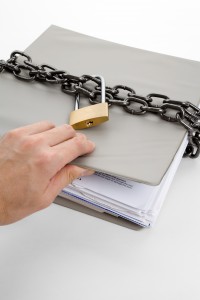FCPAméricas Blog
Best Practices for FCPA Investigation Document Holds
3.20.2014
 Once an allegation of a potential FCPA violation has been made, companies should investigate it and fully document their work. The preservation of relevant documents as early as possible is one of the most important steps to a credible investigation.
Once an allegation of a potential FCPA violation has been made, companies should investigate it and fully document their work. The preservation of relevant documents as early as possible is one of the most important steps to a credible investigation.
The exact steps to be taken to preserve documents will depend on a number of factors, including the scope of the investigation and the size of the company. They will almost always include the issuance of a “document hold.” This is a formal communication to employees who may have relevant information stating that they should not destroy any documents related to a specific matter until further notice.
Document holds are a basic expectation of FCPA enforcement officials. They can also play an important role in Latin America now that countries are starting to give credit for self-disclosure and cooperation with enforcement authorities in corruption cases.
The specifics will vary from case to case. But companies issuing investigatory document holds should consider various factors before doing so. This post highlights four. A future post will address additional factors for consideration.
Define the proper scope. Defining the scope of the document hold is not easy. This is because the hold is usually sent at the earliest stages of the investigation, when counsel has limited information about the facts. When determining the appropriate scope, counsel should consider that companies face more risks if they err on the side of being too narrow rather than on the all-inclusive side of preserving more documents than they might need. On the other hand, the scope should not be overly broad (e.g., preserving every one of the company`s documents). This would be overly disruptive or burdensome. Instead, the scope should be proportionally constructed to cover the specific facts at issue (e.g., records related to a specific distributor or to distributors in general; sales activities of an implicated business unit, etc.). The hold should not disclose more information than the recipients need to know to preserve the relevant documents.
Define the recipients. Once the scope of the hold is defined, it is important to determine who receives it. Organization charts are an important source of information for this task and should be obtained and reviewed as early as possible. Additional information from someone local who can be trusted is also an important source to identify custodians. Once relevant employees are identified, their direct and indirect superiors, and their assistants and peers, should also be considered as potential recipients, since they may also have relevant documents.
Review routine documentation practices. Oftentimes, companies will issue holds to employees who may have relevant documentation while forgetting to communicate the holds to the departments with hands-on access to systems and hard-copy files. These departments might have specific document retention programs already in place. When they do, it is necessary to modify the programs as early as possible to preserve relevant documents and data. For example, the IT department should be instructed to suspend ordinary destruction practices in order to comply with the hold while it is in place.
Specify the category of documents. Email correspondence and electronic files are often some of the most important sources of information in an investigation. But companies should not focus only on electronic documents, since relevant information may also exist in hard-copy documents. To address this, the document hold should clearly communicate all categories of documents that should be preserved, such as letters, faxes, instant massaging, voice mails, external hard drives, and hard-copy approvals. The hold notice should also include that corporate files inadvertently kept at home by employees or in personal devices (e.g., flash drives, cellphones, etc.) should also be preserved and produced.
The opinions expressed in this post are those of the author in his or her individual capacity, and do not necessarily represent the views of anyone else, including the entities with which the author is affiliated, the author`s employers, other contributors, FCPAméricas, or its advertisers. The information in the FCPAméricas blog is intended for public discussion and educational purposes only. It is not intended to provide legal advice to its readers and does not create an attorney-client relationship. It does not seek to describe or convey the quality of legal services. FCPAméricas encourages readers to seek qualified legal counsel regarding anti-corruption laws or any other legal issue. FCPAméricas gives permission to link, post, distribute, or reference this article for any lawful purpose, provided attribution is made to the author and to FCPAméricas LLC.
© 2014 FCPAméricas, LLC
Post authored by Carlos Henrique da Silva Ayres, FCPAméricas Contributor



 Comments
Comments